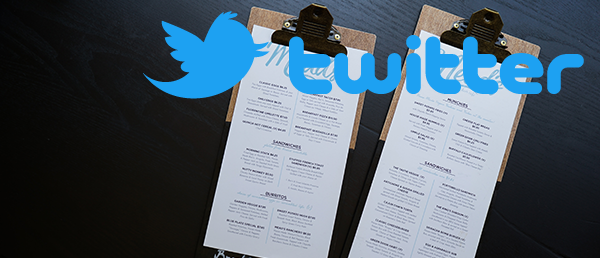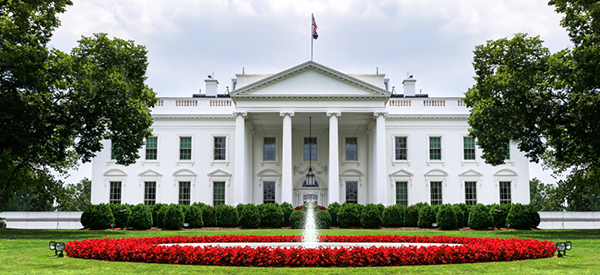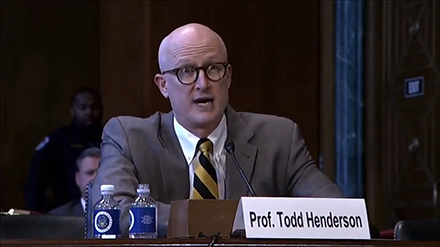 |
||||||||||||
|
||||||||||||
| Twitter Joins the News a la Carte Movement |
 |
| In late April, Elon Musk announced (via a Tweet, of course) that news publishers would soon be able to sell individual articles to Twitter users. The idea is that while users may not want to pay for a multitude of subscriptions, they may be game to pay a slightly higher fee for the privilege of reading the occasional article. He called it a win-win for both media organizations and the public, and he’s right. It will be good for all involved (if rolled out seamlessly, that is). As of this writing, there are some open questions, as Business Insider points out. For instance, how will it work? How will the payments be processed? Are all accounts and new organizations eligible to participate? Who sets the prices for the article? Elon Musk’s track record at rolling out Twitter features has been spotty at best, leading to significant distrust among users. But let’s assume for a second that Musk’s engineers can design a seamless feature and iron out any kinks; this could be a very good thing for the industry. As Jana Meron told AdMonsters this past March, paywalls lead to missed opportunities, sometimes needlessly so. This model is an important step in creating a more holistic approach to revenue that Meron says is critical to the future of digital publishing. |
| Twitter is joining Post.News in allowing users to consume — and pay for — desired content on the fly. While Post.News has a relatively small subscriber base, Twitter has over 1.3 billion users, 237.8 of whom are active. Twitter has the power to socialize the concept of paying for content one article at a time, which just may spur other platforms to get into the game. The more widespread this feature is, the more it benefits publishers. When talk of a recession took hold, consumers began tightening their belts, and subscriptions took a hit. Many publishers watched their subscriber base shrink. As it is, consumers have a habit of sharing passwords with friends and colleagues, which means publishers have very little chance of monetizing those lurkers. But one-click access to purchase an article is easier than asking someone to share his or her credentials. It can also lead to some of those Twitter/Post.News users to opt-in to subscribe. The Bigger Picture. A la carte article sales may be a great way for publishers to open a new revenue source and ultimately build an audience among people who wouldn’t have otherwise paid for a subscription. More importantly, it’s another tool in the publisher’s arsenal, enabling them to get more creative in earning revenue. A one-size-fits-all approach (all advertising or subscription only) leaves too many consumers on the sideline, many of whom are keenly interested in a brand’s content but already pay for multiple news and streaming services. The Plot Thickens. The Wall Street Journal reports that TikTok plans to roll out a new feature called Pulse Premiere that can make advertising more appealing for publishers. This feature allows marketers to place their brand ads directly after the content of TikTok's media and publisher partners in various categories like sports, entertainment, education, and more. It's the first time publishers have been given a chance to do this, which could be a game-changer for advertising on the platform, assuming Congress doesn’t ban it. The Upshot. We may be seeing the beginning stages of a new paradigm for news consumption. However, both publishers and readers must get on board for it to work. |
| The Trade Desk Seeks Control of Retail Media Market |
 |
| The Trade Desk CEO, Jeff Green, told investors he has his eyes set on the $500 million retail media market. The Competition is Steep. Rival ad tech companies, Criteo and CitrusAds, stand in Green's way toward retail media domination. Most of the money from e-commerce advertising comes from search ads on retailers' websites, and ad tech firms like Criteo and CitrusAds dominate this area.
The Trade Desk must build ad products that can buy ads on e-commerce websites and successfully pitch advertisers to use The Trade Desk to get a large chunk of the e-commerce spend. The Arsenal: The Trade Desk already works with retailers like Walmart, Target, and Home Depot to help advertisers buy programmatic ads powered by retailers' data.
|
The Fast-Growing Marketplace: The retail media market is becoming one of the most sought-after marketplaces in the ad tech ecosystem. Predictions asserted that by this year, Retail Media Networks would exceed $52 billion.
Eye on the Prize: Green is wise for wanting a piece of the retail media market. The revenue in the market is growing YOY. In addition, as the industry becomes more privacy-centric, first-party data assets will be a great asset for The Trade Desk's arsenal. The Battle Plan: Alongside targeting on-site advertising, The Trade Desk struck a strategic partnership with commerce measurement platform Attain to help the retail media space provide timely data on how their ads drive sales across multiple retailer sites and stores.
|
| AI’s Biggest CEOs Assemble at the White House |
 |
|
The White House invites many guests to convene in their halls. But there’s never been a meeting like this. At least, we don’t think so. We’re talking about the recent invitation to top AI CEOs to meet with administration officials.
|
The Creative, The CopyWriter, and the Job Stealer: IBM CEO Arvind Krishna just announced that he is preparing to use artificial intelligence to replace thousands of jobs at his company. It is one of the first acknowledgments from a company that they plan to replace employees with AI — a concern many tech critics have voiced before.
IBM's Prerogative: Krishna said that IBM plans to go on a hiring freeze on back-office functions for now. The company currently has 26,000 employees.
The Godfather of AI, Geoffrey Hinton, left Google for this reason. He warned that AI would wipe out what he considers "drudge work" — paralegals, personal assistants, and translators. Although, it seems AI is casting a wider net. Chegg Falls Victim to AI's Popularity: Chegg's shares fell 49% because of Open AI's ChatGPT. CEO Dan Rosensweig acknowledged that ChatGPT started hurting their business because more students use ChatGPT for homework instead of Chegg's study tools.
Generative AI's reach is far and wide, and thus; thus, some companies face the consequences of the technology's takeover. |
| Around the Water Cooler |
| Everything else on our radar... Attention-Based PMPs Help Brands Be More Seen, and Green In partnership with Adelaide, brands like Mars and Nespresso are testing two new PMP products that aim to increase attention metrics and sustainability as they believe there is a correlation between the two. (AdExchanger) Google Blocks 1.43 Million Malicious Apps Last year, Google’s improved security features blocked 1.43 million bad apps from being published to the Play Store and banned 173,000 bad accounts. This hindered over $2 billion in fraudulent and abusive transactions. (The Hacker News) A Major Sports Brand’s Bankruptcy Could Shift Live Streaming Diamond Sports Group, the largest operator of regional sports networks in the U.S., filed for bankruptcy in March after falling billions of dollars in debt. They could not keep up with the evolving media landscape, and their downfall could drastically change live streaming in sports. (The Current) Ad Industry Prepares for Fallout From Writer’s Strike Last week, the Writers’ Guild of America began a strike after six weeks of negotiations broke down between the guild and the Alliance of Motion Picture and Television Producers. Now advertisers are waiting to see what repercussions they have to face. (Digiday) Leaked Document Suggests Google and Open AI Will Lose AI Race to Open Source One of Google’s engineers warned the company that it is not in a position to win the artificial intelligence race and could lose out to commonly available AI technology. He said that the open-source community is already solving problems that Google and other closed developers struggle with. (Semianalysis) |










